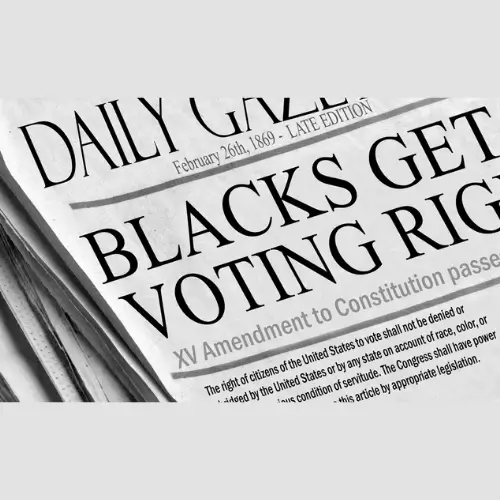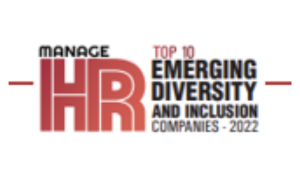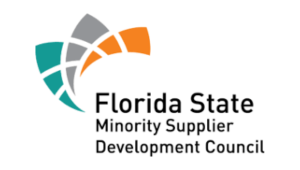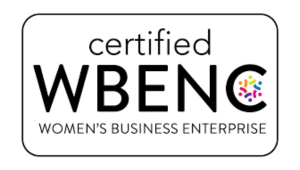States have already enacted more than 20 laws this year that will make it harder for Americans to vote — and many legislatures are still in session. The United States is on track to far exceed its most recent period of significant voter suppression — 2011. By October of that year, 19 restrictive laws were enacted in 14 states.
As of June 21, 2021, 17 states enacted 28 new laws that restrict access to the vote. With some state legislatures still in session, more laws will certainly follow. The restrictive laws from 2011 were enacted after the 2010 elections brought a significant shift in political control over statehouses — and as the country confronted backlash to the election of its first Black president. Today’s attacks on the vote comes from similar sources: the racist voter fraud allegations behind the Big Lie and a desire to prevent future elections from achieving the historic turnout seen in 2020.
Republicans Insidious Backlash To Restrict BIPOC Voters
In a backlash to 2020’s historic voter turnout and unprecedented vote-by-mail usage, state lawmakers have imposed a variety of significant restrictions on both mail voting and in-person voting. Florida, Georgia, and Iowa have each used single omnibus bills, which incorporate many restrictions, to undertake a full-fledged assault on voting. By contrast, Arkansas and Montana lead the country in the number of restrictive bills enacted (four each), each of which addresses a narrower range of issues. Laws enacted in Arkansas, Florida, Georgia, Iowa, and Montana are already being challenged in court.
Some U.S. Company CEO’s Protest Efforts To Disenfranchise Voters of Color
- In April 2021, corporate executives across the United States called out efforts to restrict voting access after Georgia Gov. Brian Kemp signed a law that opponents say would disproportionately disenfranchise people of color. Georgia-based companies have gotten backlash from voting advocates for their silence on new regressive legislation. As history shows, it’s working.
- In May 2021, Dozens of big companies, local Texas businesses, and chambers of commerce issued a statement reflecting the biggest pushback yet by the business community against Texas Republican efforts to further tighten the state’s restrictive voting rules. The companies who signed the open letter include American Airlines, Microsoft, HP, Etsy, Salesforce, Unilever, Patagonia, REI Co-op, Warby Parker, Sodexo, and Levi Strauss & Co.
The letters mark the most coordinated push by the state’s business community yet against lawmakers’ proposed voting restrictions, after American Airlines and Dell previously spoke out individually against the new voting rules.
Companies Talk the Talk on Voting Rights But Will They Walk the Walk?
CEO Action for Diversity & Inclusion™ is the largest CEO-driven business commitment to drive measurable action and meaningful change in advancing diversity, equity, and inclusion in the workplace. As of July 2021, roughly 2000 CEOs have already signed the pledge.
CEO Action for Diversity & Inclusion™ aims to rally the business community to advance diversity and inclusion within the workplace. The CEO Pledge outlines a specific set of actions the signatory CEOs will take to cultivate a trusting environment where all ideas are welcomed, and employees feel comfortable and empowered to have discussions about diversity and inclusion.
Has your CEO signed the Pledge?
Fortune 500 Companies in Georgia, Texas, and Arizona
- There are eight (8) Fortune 500 companies headquartered in Georgia including The Home Depot, UPS, Delta Air Lines, The Coca-Cola Company, The Southern Company, Genuine Parts Company, WestRock, and PulteGroup
- Texas is tied for tops in Fortune 500 headquarters with fifty-seven (57) companies led by Exxon Mobil, AT&T, Kimberly-Clark, J.C. Penney, American Airlines, Southwest Airlines, Texas Instruments, and fifty other large companies
- Arizona’s five (5) Fortune 500 Companies are Avnet, Freeport-McMoRan, Republic Services, Insight Enterprises, and Magellan Health
A Call to Action For Corporate Employees
If your CEO signed The CEO Pledge, or if you are an employee of these and other companies located in Georgia Texas, Arizona, Arkansas, Florida, Iowa, Montana, and any other state seeking to disenfranchise BIPOC voters, try to influence your CEO and Board of Directors to do more than write letters and issue statements, but use their employer and economic power for racial equality and social justice.
Companies Call on Congress to Strengthen Voting Rights Act
Last week on July 14, 2021, more than 150 companies called on Congress to strengthen The Voting Rights Act:
- Apple, Amazon, Google, Starbucks, and Pepsi are among more than 150 companies that signed on to a letter released Wednesday calling on Congress to pass legislation that would expand the Voting Rights Act’s protections for minority voters.
- “Despite decades of progress, impediments to exercising the right to vote persist in many states, especially for communities of color. We need federal protections to safeguard this fundamental right for all Americans,” the companies wrote in the letter.
- The letter calls for Congress to pass legislation that would update the 1965 Voting Rights Act in order to address a 2013 Supreme Court ruling that did away with one of its most effective provisions.
Voting Rights for African Americans
A terrible and bloody Civil War freed enslaved Americans. The Fourteenth Amendment to the Constitution (1868) granted African Americans the rights of citizenship. However, this did not always translate into the ability to vote. Black voters were systematically turned away from state polling places. To combat this problem, Congress passed the Fifteenth Amendment in 1870. It says:
“The right of citizens of the United States to vote shall not be denied or abridged by the United States or by any state on account of race, color, or previous condition of servitude.”
The 1965 Voting Rights Act created a significant change in the status of African Americans throughout the South. The Voting Rights Act prohibited the states from using literacy tests and other methods of excluding African Americans from voting. Prior to this, only an estimated twenty-three percent of voting-age blacks were registered nationally, but by 1969 the number had jumped to sixty-one percent.
Yet states still found ways to circumvent the Constitution and prevent Blacks from voting, as Republican politicians are doing today by circumventing the 1965 Voting Rights Act.
Fortunately, most Americans oppose the Georgia and Texas-style GOP voting restrictions and prefer Democratic and non-partisan reforms according to a poll this week.
Every eligible American wants to – and should – have a say in deciding which people and policies will determine the future for our families, community, and country.
At a time when far too many eligible voters are wrongly turned away from the polls – or simply don’t have access to them – we must rededicate ourselves to increasing participation among eligible voters.
![]()








